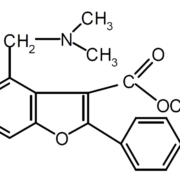IS QUERCETIN GOOD FOR ALLERGIES?
Yes, quercetin is good for allergies. Quercetin inhibits the release of histamines, which are chemical compounds that trigger allergic reactions by immune cells. As a result, researchers believe quercetin could help reduce allergy symptoms such as sinus infection, itchy eyes, hives, and swelling of the face and mouth.
CAN YOU TAKE QUERCETIN ON A DAILY BASIS?
Daily quercetin 1 gram (g) vitamins is safe in most individuals, but only when use for up to twelve weeks. If you’re taking these supplements to cure a medical issue, your doctor may advise you to take them for a longer period of time.
IS VITAMIN C GOOD FOR ALLERGIES?
Vitamin C functions as an organic antihistamine by reducing the levels of histamine produced by your body in reaction to an allergic response. It may help alleviate mild allergic rhinitis symptoms such as sneezing, nasal congestion, and itchy eyes.
WHICH VITAMIN IS BEST FOR ALLERGIES?
A pure and high-quality vitamin C will be your best buddy if you suffer from allergies. Natural antihistamines include vitamin C. In contrast to over-the-counter antihistamines like Sudafed and Benadryl, vitamin C not only lessens allergy reactions at the moment but also might help avoid them in the future.
What Is The Benefit Of Vitamin C?
Vitamin C is an antioxidant that protects your cells from the damage cause by free radicals, which are molecules that are made when your body digests food or is reveal to tobacco smoke and radiation emit by the sun, X-rays, or other sources. Free radicals may play a role in cardiovascular disease, cancer, and other illnesses.
WHO SHOULD AVOID TAKING QUERCETIN?
Quercetin should be avoid by pregnant women, breastfeeding mothers, and individuals with renal disease. There has been reports of kidney damage at doses greater than 1 g a day.
HOW LONG SHOULD YOU TAKE QUERCETIN FOR?
For the majority of people, quercetin may be safe for short-term use when taken orally. It is safe to consume up to 1 g of quercetin for each day for twelve weeks.
WHAT ROLE DOES QUERCETIN PLAY IN CURING COVID-19?
COVID-19 is known to cause an overactive immune response in the human body in extreme situations. The researchers hypothesize that quercetin, as a powerful scavenger and anti-inflammatory agent, is indeed beneficial in both COVID-19 treatment and prevention.
IS QUERCETIN BENEFICIAL TO THE EYES?
Quercetin’s antioxidant and chelating abilities have been demonstrate in numerous in vitro experiments and animal models to guard the lens from oxidative damage and prevent cataracts.
CAN QUERCETIN REDUCE ANXIETY?
Numerous studies have suggested that quercetin, a natural flavonoid, may be beneficial for treating anxiety-related symptoms when taken orally or as a supplement.
IS QUERCETIN BENEFICIAL FOR SKIN?
Quercetin moreover can help heal injured skin by lowering redness, irritation, and inflammation; it might also improve hydration and decrease water loss by restoring the function of the skin’s barrier.
WHAT NEGATIVE EFFECTS DOES QUERCETIN HAVE?
- Headache is one of quercetin’s typical adverse effects (oral use)
- Irritation and tingling (oral use)
- breathing difficulty (intravenous use)
- nausea and diarrhea (intravenous use)
- Kidney injury (when intravenous usage is more than 945mg/m2)


